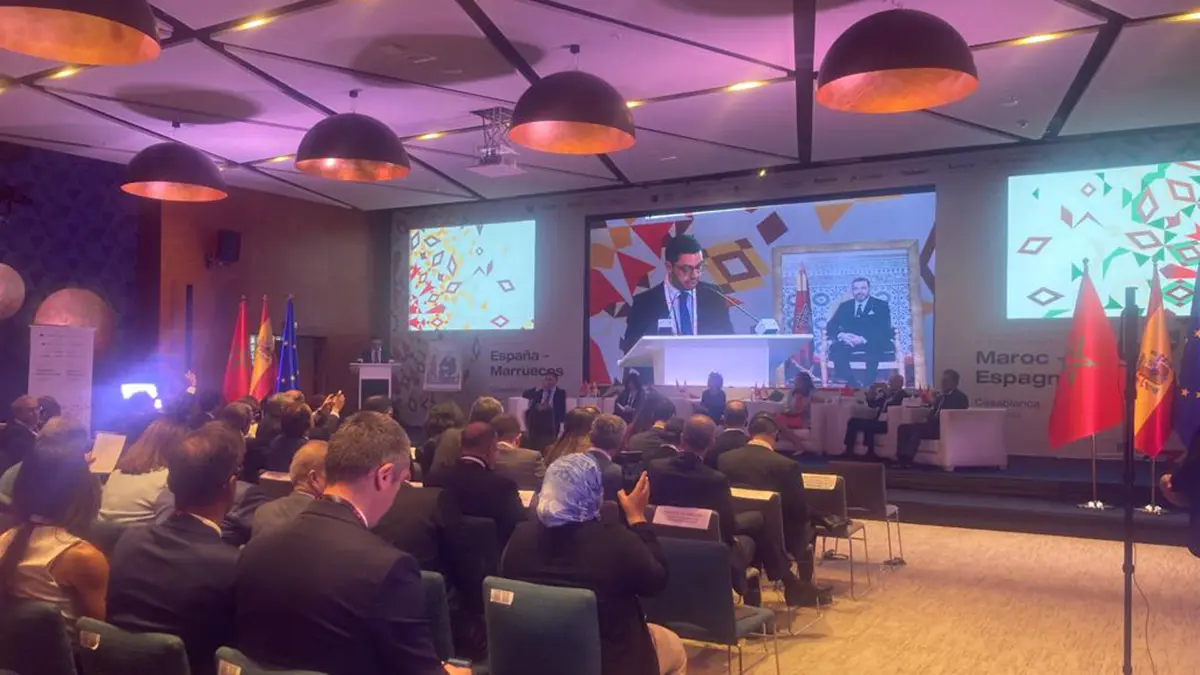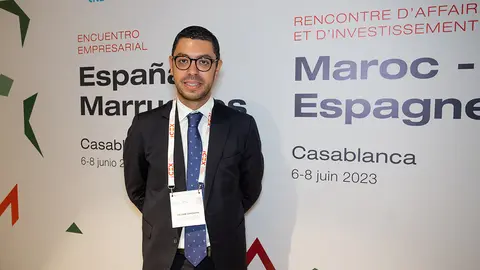Spanish businessmen in the Sahara

Many Spanish businessmen are closely analysing the investment possibilities in the Sahara and the options for carrying out relevant projects in various key sectors for the development of what Morocco considers to be the southern provinces.
Casablanca hosted the third summit in five months between Spanish and Moroccan businessmen with a notable success in terms of attendance and interest. 58 Spanish companies attended an event in which, as in the previous ones, it is important to mention the involvement of public and private organisations from both countries with the aim of achieving concrete actions in the face-to-face meetings held between businessmen from both countries, after the interventions of personalities and experts in the panels dedicated to explaining the situation and prospects in the southern neighbour in industry, infrastructures, energy and education, mainly. Morocco has enacted a new Investment Charter that speeds up, promotes and encourages the arrival of foreign capital with its experience and know-how to carry out the new modernisation process, estimated at more than 45 billion euros over the next five years.
The Moroccan authorities are offering very attractive conditions for investors and facilitating bureaucratic procedures for a strategy that is clearly committed to industrialisation as the driving force of the economy and job creation that will help overcome the major problem of inequality. Three years ago, King Mohammed VI promoted a change in the production model of the Moroccan economy to meet the challenge of substantially reducing inequality. His objectives include the development and modernisation of the Sahara, where almost everything remains to be done and where there are clear opportunities for collaboration. For Spanish businessmen, a kind of political wall looming over Spain's colonial past in the region and the open conflict in which Morocco's proposal for broad autonomy under its sovereignty is increasingly backed at the international level for negotiation within the United Nations is gradually dissolving. In the European Union, there are also reputational problems with some northern countries boycotting companies doing business in the Sahara. In a few weeks' time, the EU Court of Justice will rule on the European Commission's own appeal against the decision not to consider the Morocco-EU trade agreement valid for products from the Sahara. A few days ago, the London Court did uphold the validity of the UK-Morocco agreement, which had the same claim. The fact is that in the renewable energy sector and in the construction of the new port of Dakhla, Spanish companies are very interested in participating when the corresponding tenders are made public. Also in hotel management.
As the Moroccan Minister of Industry said, the single industrial platform for entrepreneurs from both sides of the Strait of Gibraltar goes from Vigo to Dakhla. The results of the general elections in Spain should not affect this transcendent current of increased trade relations between the two countries, which in 2022 reached 20 billion euros.


